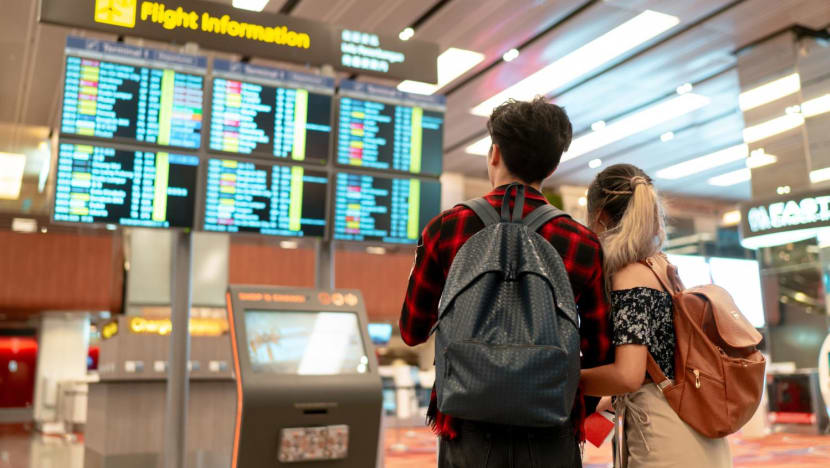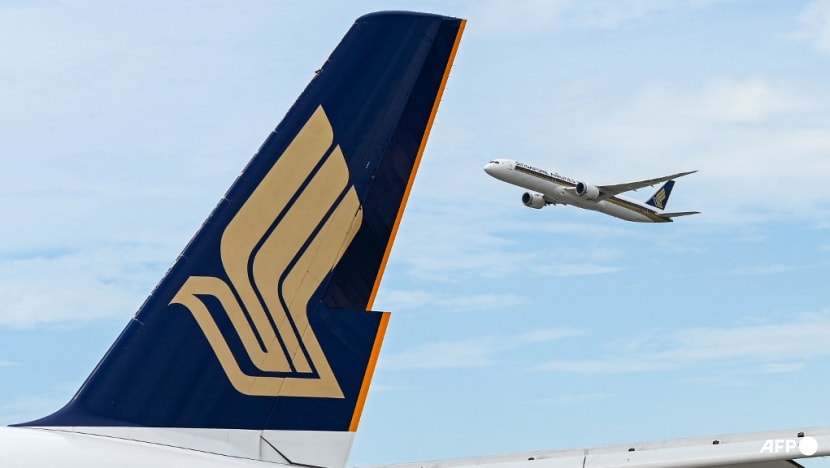Commentary: Expect the cost of your next plane ticket to stay high
The outlook for the airline sector in Asia and globally is relatively bright but there are numerous challenges and potential headwinds, says aviation analyst Brendan Sobie.


This audio is generated by an AI tool.
DUBAI: The mood at the International Air Transport Association (IATA) annual general meeting in Dubai earlier this week was upbeat. Airlines are expected to generate a net profit of about US$30 billion in 2024, based on IATA’s newly revised forecast.
Air fares that soared post-pandemic are starting to normalise as airlines gradually restore capacity. However, consumers should not expect air fares to return to 2019 levels. Instead, prices are likely to remain significantly higher.
Record-high revenues are expected this year, but also record-high expenses. IATA said it is not realistic to expect air fares to ever return to pre-COVID levels because the higher costs the industry is now paying are permanent.
From geopolitical headwinds to supply chain constraints and rising costs, the airline industry has never faced more challenges at once.
MANY CHALLENGES, ALL AT ONCE
US$30 billion may sound considerable, but that works out to a margin of only 3.1 per cent or a profit of about US$6 per passenger. With margins still very thin, any decline in demand could have major ramifications.
Taxes are on the rise and the increased focus on sustainability has a cost. For example, the cost of sustainable aviation fuel is now three to four times higher than conventional fuel and while it should decline as production increases, there will still be a major gap.
“It’s unrealistic for airlines to absorb all the costs,” said IATA Director General Willie Walsh in a media briefing. “It’s not that we want to put prices up, but we have to be honest.”
He added it is still cheaper to fly now than prior to the pandemic when factoring in inflation and noted how air fares steadily declined in the decade prior to the COVID-19 pandemic. IATA believes consumers are also now able to afford higher fares given the growth in average wages has generally outpaced the growth in inflation.
Supply chain constraints leading to delays in delivering new aircraft are expected to persist, so there will likely continue to be a demand-supply imbalance.
Airlines trying to cope with these delays by leasing additional aircraft or extending leases of existing aircraft have also faced increasing costs, given the limited availability has pushed up lease rates.
Other challenges include higher debt levels due to the financial overhang from the pandemic and exacerbated by the current environment of high interest rates. There are also geopolitical issues that have already led to the closure of large chunks of airspace in Russia and the Middle East, resulting in much longer flights on some routes. Elections this year in many major markets, including the United States, also create uncertainties.
NOTHING STOPPING ASIAN TRAVELLERS
However, airlines are generally upbeat and in Asia, they are particularly confident as the region is the main growth driver for the global industry. Economies in Asia are relatively strong with an expanding middle class population that is eager to travel, driving up demand.
Asians are generally not thinking twice about travelling. Recent jitters about in-flight turbulence in the aftermath of Singapore Airlines flight SQ321, which barely came up during the IATA meeting, is also not likely to impact demand.
Compared to other regions, sustainability or environmental concerns does not seem to be impacting demand in Asia. Asia’s air transport market is almost fully recovered from the pandemic and there is a new push to expand airport infrastructure, facilitating a new period of growth.

In Asia-Pacific, a modest US$2 billion in net profits are expected in 2024, up from about US$200 million in 2023. However, these figures do not tell the full story as there are major variations in the financial performance of Asian airlines.
Chinese carriers are particularly struggling due to the slow recovery of China’s international market. Capacity for domestic flights in China, now significantly above pre-COVID levels, is also outstripping demand - the opposite of the demand-supply imbalance in the rest of Asia.
In Southeast Asia, full-service network airlines have been doing extremely well with record profits recently posted by Singapore Airlines, Thai Airways, Malaysia Airlines and Philippine Airlines.
These and a few other Asian airlines have captured headlines with big profits, but many Asian airlines are in much weaker financial position than they were prior to the pandemic and would be vulnerable if a new crisis emerges.
The airline industry is notoriously cyclical. And there can be a massive swing at any time, bringing an abrupt end to the current bullishness.
There is no denying that airlines in Asia - and globally - face a host of challenges.
AIR INDUSTRY IN A SWEET SPOT
However, the demand environment is exceptional. Even if air fares come down from their highs last year, they will likely remain at high enough levels to cover the increased costs.
There is a major silver lining in all the aircraft delivery and supply chain issues in that airlines have become more rational and disciplined. Prior to the pandemic, competition was often irrational and airlines lacked capacity discipline, particularly in Southeast Asia.
While it is never an easy business and navigating the airline business in some respects now seems more difficult than ever before, 2024 is not a bad time to be an airline.
The jubilation in Dubai the last few days, with host airline Emirates spending lavishly three weeks after posting a record annual profit, is a testament to the sweet spot the industry may be enjoying.
Brendan Sobie is the founder of Singapore-based independent aviation consulting and analysis firm Sobie Aviation.



















